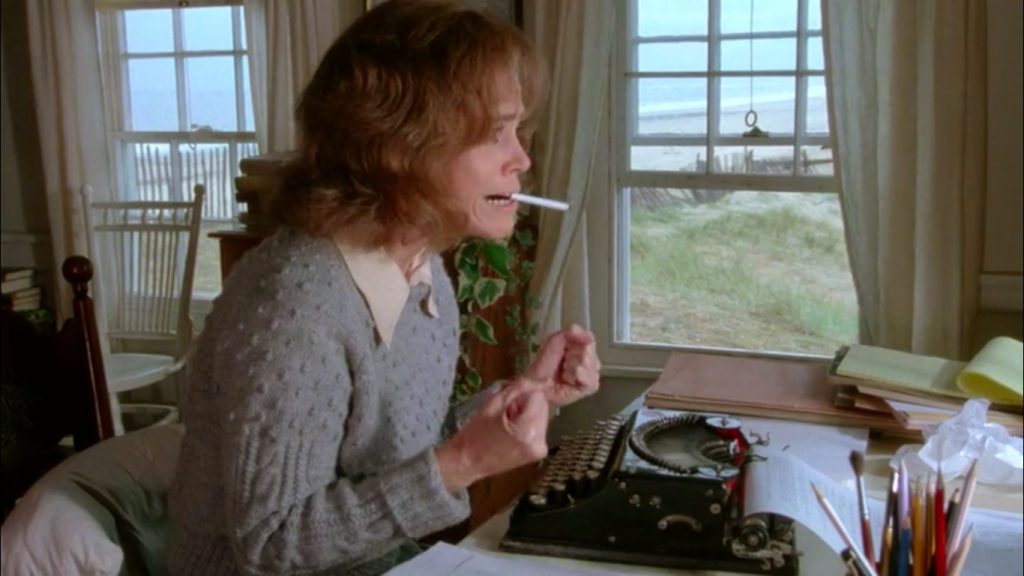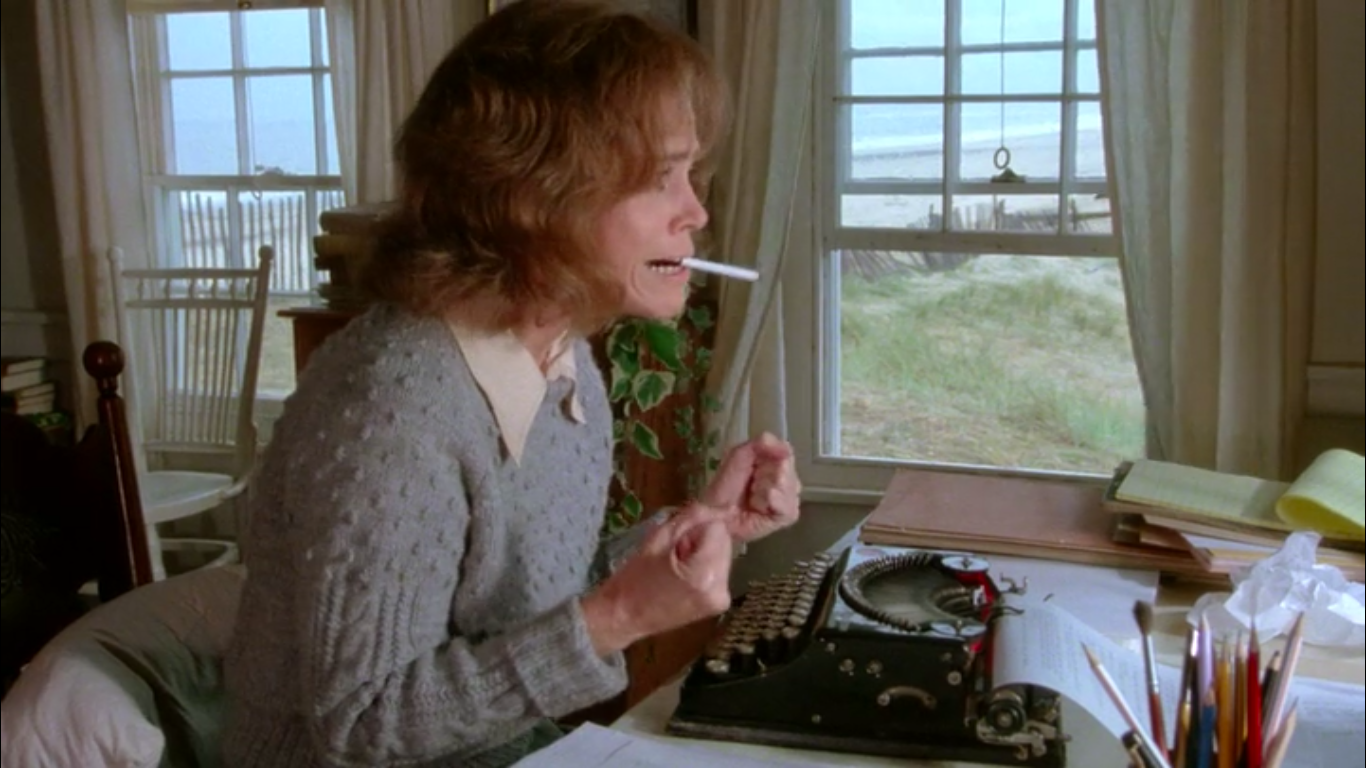
Even great writers like Lillian Hellman (played by Jane Fonda in Julia) sometimes get stuck. Photo courtesy Twentieth Century Fox.
One of the things I tell beginning writers is that you have to love what you’re writing. You’re going to spend a lot of time with it, months, years, decades even. If you’re not telling a story you love that time is going to be very painful. But no matter how well you’ve chosen your story there may come a time when you get stuck. This is not exactly the same as writer’s block, that’s a complete stoppage. No, this is when you’re working on a project and, for some reason, you suddenly stop. You’re not having a problem writing. You’re having a problem writing that story. So, what do you do when that happens?
No. 1 – Take A Break
One of the challenges of being a beginning writer is time. Most of us need day jobs which means that our writing gets pushed into the hours after work, before work, weekends, holidays, vacations and sometimes even lunch hours. What this means is that we don’t get a lot of days off. If you get stuck, take a day off. Take two. Take a week. Reconnecting with what it means to be a regular human being—you know, the people we write about—is not a bad idea. Everyone needs to recharge. Sometimes the best thing a writer can do is not write.

Matthew Broderick and friends take a break in Ferris Bueller’s Day Off. Photo courtesy Paramount Pictures.
No. 2 – Write Something Else
If you’ve taken a break and that doesn’t work, or if you just simply cannot take a break, try writing something else. Very often I’m asked how long it takes me to write a book, and honestly, I don’t know. I start and stop. I write a third of one book, then most of another and then finish off another book I started a while ago and then go back to the first. Various forces are going to influence what you’re working on and when you work on it. Take advantage of that. If you’ve hit a wall with one story, work on another. When you come back to the first one you may find that you have a whole new perspective – or you may have learned something about writing from the other project.
No. 3 – Go Back To Structure
Whether you outline completely or not, if you get stuck it’s not a bad idea to go back and make sure you’ve hit all your important structural beats. When I get stuck, it’s very often because something isn’t quite working. Going back and re-examining structure often exposes something I need to change and once I’ve made that change the rest of the draft just falls into place.
And remember, there are many ways to look at structure. If you’re really stuck try a new way to look at things. Try one you haven’t tried before. One of the really great things I heard at UCLA film school was this, ‘You should never be more than seven pages away from something important happening.’ Films are getting tighter these days so I might trim that down to five pages. That means every ten pages something has to be happening. You can look at your script as nine or ten sequences of set-up/event/response. This is a great way to tell if one of your sequences is too long or too short.

Important question: Is structure easier if your film is literally about building blocks? Photo courtesy Warner Brothers.
No. 4 – Write Outside the Script
Another thing I like to try when I get bogged down is writing outside the script. Most of us do our prep work and then attempt to write a linear draft. Writing outside the script is non-linear writing. Sit down and write about your characters. Write things they say without worrying where the dialogue goes. Write monologues. Write alternate scenes. Write anything that comes to mind. Eventually, you’ll have a bunch of stuff you want to incorporate into your script. That’s when you go back to it.
No. 5 – Give Up
Not all stories work. And not all stories are movies. We all have stories that didn’t quite pan out. That used to be what the bottom desk drawer was for—now, we put them in a computer folder labeled MISFIRES. I can almost hear you moaning as I write this. No one wants to let go of work they’ve done. I can guarantee you one thing though. If you put something aside and it’s actually a good story that deserves to be told it won’t let you go. No matter how hard you try not to hear it, it will call you back. Don’t worry about giving up on a story. If it’s the right thing to do it will stay silent and you’ll never go back to it. If it’s the wrong thing to do, you’ll be pulling it out of the MISFIRE folder in a couple of months and starting again.
So, those are some strategies for getting going again if you’re stuck. What kinds of things work for you?




1 Reply to "Five Strategies For When You’re Stuck"
Kenny Rich May 3, 2018 (9:21 pm)
Marshal thanks for the article it really made my evening. I’m in the home stretch of a screenplay I’ve been working on for
a number of years. It’s a piece I’m so passionate about that there is no way I will ever give up on it. Your article provided me
with a couple of really good ideas that I think are going to get me to the finish line.
Kenny Rich